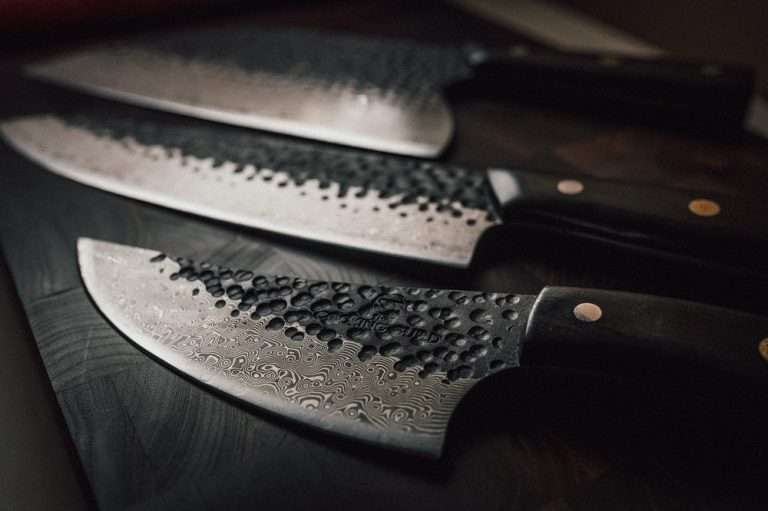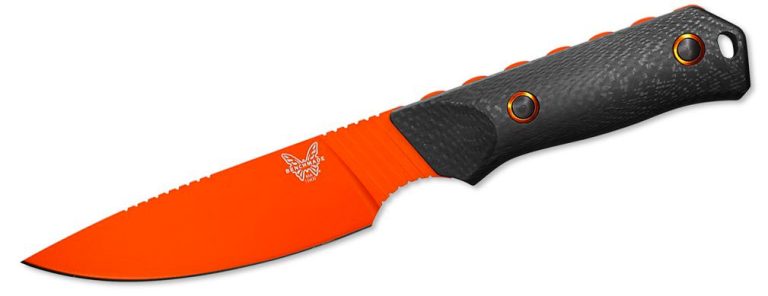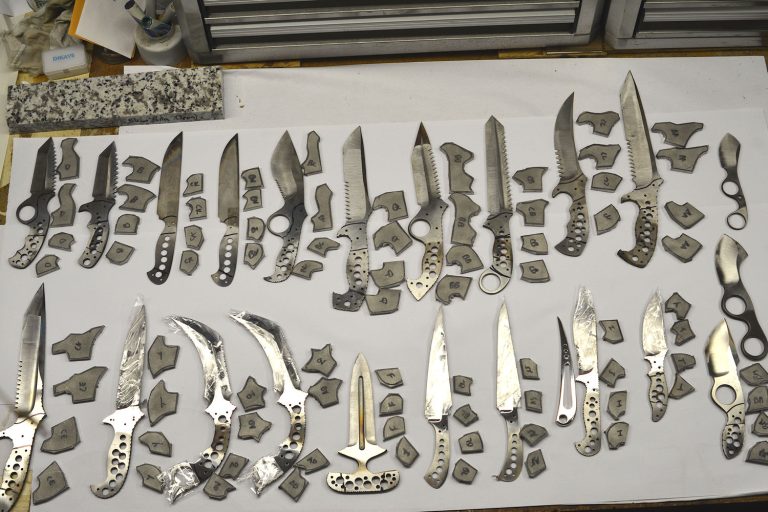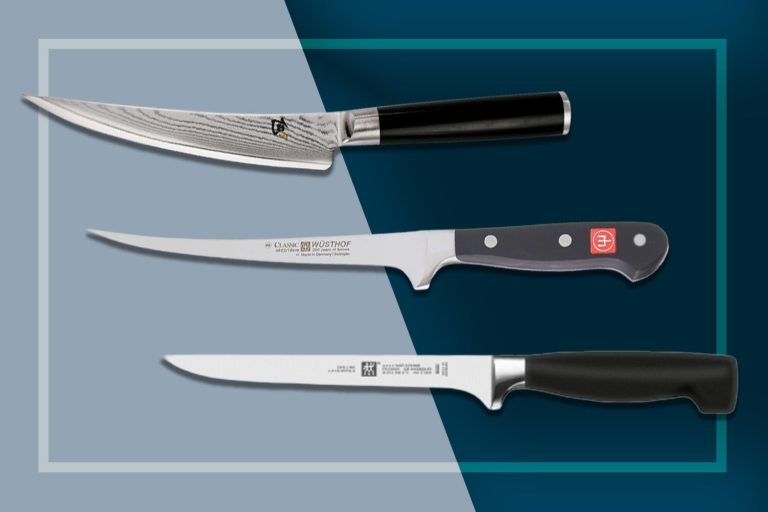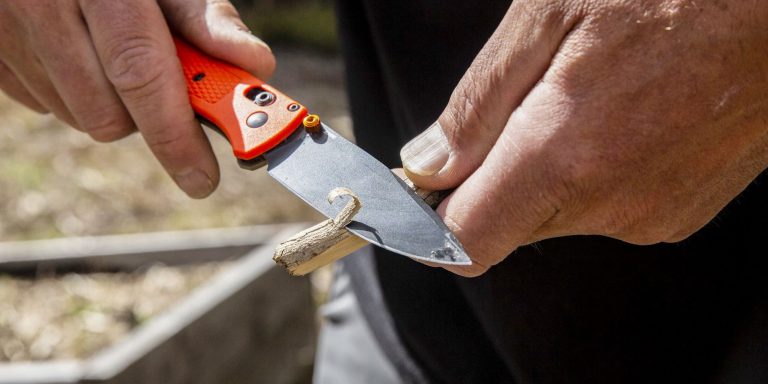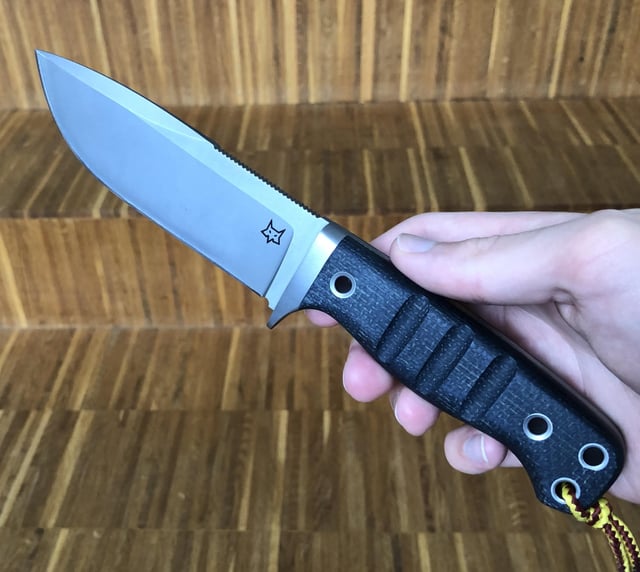Saltwater Vs. Freshwater Fishing Knives
Saltwater fishing knives differ from freshwater fishing knives in their ability to withstand the corrosive nature of saltwater and their durability in harsh marine environments. The right knife for saltwater fishing is designed to resist rust and corrosion, making it suitable for use in saltwater conditions where normal knives may deteriorate.
On the other hand, freshwater fishing knives are typically not built to withstand the corrosive effects of saltwater, making them less effective and less long-lasting in marine environments.
The Importance Of Choosing The Right Fishing Knife
Choosing the right fishing knife is crucial for a successful fishing trip. Whether you are a saltwater or freshwater angler, having the appropriate knife will greatly enhance your fishing experience. There are different types of fishing knives available, including fillet knives, bait knives, and multi-purpose knives. Fillet knives are ideal for removing bones and skin from fish, while bait knives are designed for cutting bait and other materials. Multi-purpose knives offer versatility and can be used for various fishing tasks.
When selecting a fishing knife, there are several factors to consider. Firstly, the blade material should be durable and corrosion-resistant, such as stainless steel. The blade length should be appropriate for the type of fishing you intend to do. A longer blade is suitable for larger fish, while a shorter blade provides more control for precision cutting. Additionally, the handle should offer a comfortable grip, allowing for ease of use. Finally, consider the overall weight and portability of the knife, as you may need to carry it with you on fishing trips.
| Type of Knife | Best Use |
|---|---|
| Fillet Knife | Removing bones and skin from fish |
| Bait Knife | Cutting bait and other materials |
| Multi-purpose Knife | Versatile for various fishing tasks |
By considering these factors and choosing the right fishing knife, you can ensure a more enjoyable and efficient fishing experience. So, before your next fishing trip, take the time to find the perfect knife for your needs.
Saltwater Fishing Knives
Saltwater fishing knives are specifically designed to handle the harsh conditions of saltwater environments. These knives have certain characteristics that make them ideal for saltwater fishing. Some of these characteristics include corrosion resistance, durability, and a sharp blade.Using a saltwater fishing knife offers several benefits. The corrosion-resistant properties of these knives ensure that they can withstand exposure to saltwater without rusting or dulling. This makes them long-lasting and reliable tools for anglers. Additionally, the sharpness of the blade allows for precise and clean cuts, making filleting and preparing fish easier and more efficient.When it comes to the top brands of saltwater fishing knives, there are several renowned names in the market. These brands are known for their high-quality craftsmanship and reliable performance. Some of the popular brands include Rapala, Bubba Blade, and Morakniv. Anglers trust these brands for their superior products that are specifically designed for saltwater fishing.In conclusion, saltwater fishing knives offer unique characteristics that make them suitable for saltwater environments. Their corrosion resistance, durability, and sharp blades make them reliable tools for anglers. Trusted brands like Rapala, Bubba Blade, and Morakniv provide top-notch options for saltwater fishing enthusiasts.Freshwater Fishing Knives
Freshwater Fishing Knives When it comes to freshwater fishing knives, they possess unique characteristics that make them well-suited for fishing in freshwater environments. These knives are designed to handle the specific challenges and requirements of freshwater fishing. |
Characteristics of Freshwater Fishing Knives
|
Benefits of Using a Freshwater Fishing Knife
|
Top Freshwater Fishing Knife Brands
|
Saltwater Vs. Freshwater Fishing Knives
Saltwater Vs. Freshwater Fishing Knives
Saltwater and freshwater fishing knives differ in their design and construction. Saltwater knives are specifically engineered to withstand the harsh conditions of saltwater environments, which can cause corrosion and rust. These knives often feature blades made of stainless steel or titanium, which are resistant to corrosion. They are also designed with robust handles and ergonomic grips to ensure a secure hold, even in wet and slippery conditions.
On the other hand, freshwater fishing knives may not require the same level of resistance to corrosion. They are typically made of steel or high-carbon stainless steel, which provide excellent strength and durability. The handles of freshwater knives may be designed for comfort during extended use, with materials like rubber or textured grips for enhanced control.
Blade materials used in saltwater and freshwater fishing knives also differ. Saltwater knives often use stainless steel or titanium, which are highly resistant to corrosion caused by exposure to saltwater. These materials retain their sharpness and integrity even after prolonged use in saltwater environments. Some saltwater knives also feature serrated edges for cutting through tough materials, such as rope and scales.
Freshwater fishing knives, on the other hand, may use steel or high-carbon stainless steel blades. These materials offer a balance of strength and corrosion resistance, making them suitable for regular freshwater fishing use. The blades are often honed to a sharp edge to precisely fillet and cut through fish.
The performance of saltwater and freshwater fishing knives can vary depending on the environment they are used in. Saltwater knives excel in the corrosive, abrasive, and wet conditions present in saltwater fishing. Their corrosion-resistant materials and durable construction ensure long-lasting performance in harsh saltwater environments.
Freshwater knives are specifically designed for the milder conditions of freshwater fishing. They are built to withstand a range of freshwater environments, including rivers, lakes, and ponds. Their construction emphasizes strength, sharpness, and utility for versatile freshwater angling applications.
Factors To Consider For Saltwater Fishing
In the world of fishing, choosing the right knife can make a significant difference in your experience. When it comes to saltwater fishing, there are a few factors to consider when selecting a knife. One crucial aspect is corrosion resistance. Saltwater can be highly corrosive, so it’s essential to choose a knife made from materials that can withstand these conditions.
Durability in harsh conditions is another consideration when saltwater fishing. The knife should be able to withstand the rigors of marine environments, including exposure to salt, water, and harsh weather.
Blade sharpness and retention is also vital for saltwater fishing knives. A sharp blade will ensure clean and precise cuts, while good blade retention will keep the knife sharp for extended periods without frequent sharpening.
Factors To Consider For Freshwater Fishing
Saltwater and freshwater fishing require different knives that are suited to the unique challenges and environments of each. When considering a knife for freshwater fishing, there are several factors to keep in mind. One important factor is the versatility for different species that you may encounter in freshwater. Freshwater fishing often involves targeting a variety of species, and a versatile knife can handle different types and sizes of fish with ease.
Another important factor to consider is the ease of maintenance of the knife. Since freshwater environments are generally less harsh than saltwater, maintenance may be less of a concern. However, it is still important to choose a knife that is easy to clean and maintain, as this will extend its lifespan and ensure optimal performance.
Precision and control are also crucial when selecting a knife for freshwater fishing. The ability to make precise cuts is essential for filleting and preparing fish, and a knife that offers good control will make the process easier and more efficient.
Maintenance And Care For Fishing Knives
Proper maintenance and care of fishing knives is essential to ensure their longevity and performance. Cleaning and drying techniques play a significant role in keeping your fishing knives in optimal condition. After each use, **carefully clean** the knife using mild dish soap and warm water, avoiding harsh chemicals that may damage the blade. **Thoroughly dry** the knife immediately after washing to prevent rust and corrosion.
In addition to cleaning and drying, **proper storage** of fishing knives is crucial. Store your knives in a dry and cool environment to prevent moisture buildup. Consider using a sheath, knife roll, or magnetic strips to protect the blade and avoid any accidental cuts.
To maintain the knife’s performance, establish a **regular maintenance schedule**. This includes sharpening the blade when necessary, inspecting for any signs of damage or wear, and lubricating the pivot point or hinge if applicable. Regularly check the handle for any loose screws or cracks to ensure safe and efficient use.

Credit: www.amazon.com
Recommended Fishing Knife Accessories
When it comes to fishing knife accessories, there are a few key items that every angler should have to enhance their fishing experience. One of the most important accessories is a high-quality knife sharpener or honing tool. These tools help maintain the sharpness of your fishing knife, ensuring clean and precise cuts. Investing in a reliable sharpener or honing tool can prolong the lifespan of your fishing knife and improve its performance.
Another essential accessory for fishing knives is a sheath or holster for safekeeping. A good sheath or holster not only keeps your knife protected when not in use but also prevents accidents and injuries. It allows for easy access and ensures that your knife is securely stored during transportation and storage.
In addition to knife sharpeners and sheaths, multi-tool options can provide added convenience on fishing trips. These versatile tools often feature a variety of useful tools such as pliers, screwdrivers, and bottle openers. Having a multi-tool on hand can save you time and effort by offering multiple functions in one compact device.
Conclusion
To conclude, the choice between saltwater and freshwater fishing knives ultimately depends on your specific needs and preferences. Saltwater fishing knives are designed to withstand the harsh conditions of the ocean, with corrosion-resistant blades and durable handles. They are best suited for cutting through tough and slippery fish species found in saltwater environments.
On the other hand, freshwater fishing knives are more versatile, as they can be used in both freshwater and saltwater settings. They are generally lighter and more compact, making them easier to carry and handle. Regardless of your choice, investing in a high-quality fishing knife is crucial for any angler.
Consider the type of fishing you will be doing, the size of the fish you will be targeting, and the environment in which you will be fishing. With the right fishing knife in hand, you can enhance your fishing experience and make the most out of every catch.

